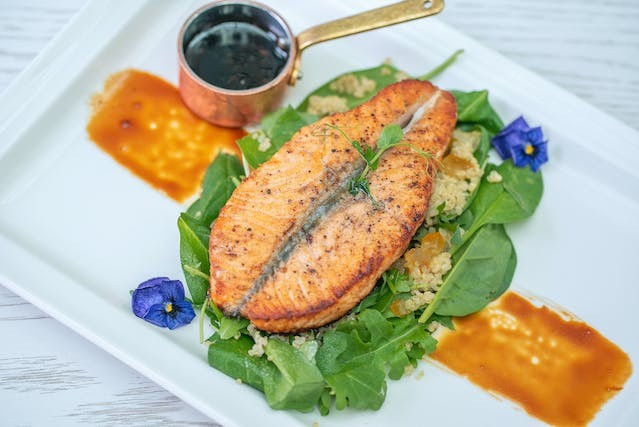
Kids should be fed with a healthy diet to keep them away from bowel disease. Gastroenterologists shared a preventive diet for toddlers to keep their gut healthy.
Healthy Diet For Toddlers
The risk of inflammatory bowel disease (IBD) could be significantly decreased by adopting a balanced diet as early as age 1. According to the new study, the best strategy to prevent the condition may be to eat a diet rich in vegetables and fish.
The illness, commonly referred to as IBD, is brought on by an inflammation of the digestive system. Intense urge to urinate, diarrhea, bleeding in the rectal area, and stomach ache are among the symptoms. When using a variety of treatments to manage the symptoms, people can often lead normal lives. On the other hand, it can raise the risk of colon cancer and occasionally result in serious problems.
Scientists are unsure of the reason for the apparent global increase in cases. They have already examined the effects of nutrition on risk in adults, but less is known about how it affects babies.
IBD is not specific to any cause, although people with weakened immune systems are typically affected. As a result, research into the disease's prevention and treatment is ongoing.
They discovered that diets richer in vegetables and fish at the age of one were associated with a decreased incidence of the illness. According to the study, there was a 42 percent increase in risk for children who consumed more sugar-sweetened beverages.
Researchers could not detect any connection between eating a lot of meat, dairy, or potatoes. Still, there was a strong correlation between fish and veggies and a decreased risk of IBD.
"While non-causal explanations for our results cannot be ruled out, these novel findings are consistent with the hypothesis that early-life diet, possibly mediated through changes in the gut microbiome, may affect the risk of developing IBD," the authors wrote.
ALSO READ: 5 Best Conspiracy Theories About COVID-19
Vegans Have Lower Risk of Contracting COVID-19
The World Health Organization recommends a diet rich in fresh fruits, vegetables, legumes, nuts, and whole grains to boost immunity and lower the risk of infection because several studies have connected COVID-19 to poor food quality. One study investigated the impact of eating a plant-based diet on the chance of contracting COVID-19.
The University of Sao Paulo team recruited 702 adult volunteers between March and July of 2022 to advance their research. We asked the participants about their diet, frequency of eating groups, medical history, vaccinations, and way of life.
About 330 patients reported having been afflicted with SARS-CoV-2, with 15% exhibiting symptoms that ranged from moderate to severe. After adjusting for confounding risk factors like BMI, physical activity, and prior medical conditions, people on a plant-based or vegetarian diet had a 39 percent lower risk of catching COVID-19 than people on an omnivorous diet.
According to the study's authors, the severity or duration of the patients' infections did not appear to be related to their diets. The authors hypothesize that the quantity of plant chemicals could cause this variance in infection risk.
"Plant-based dietary patterns are rich in antioxidants, phytosterols and polyphenols, which positively affect several cell types implicated in the immune function and exhibit direct antiviral properties," the authors wrote.
RELATED ARTICLE: Conspiracy Theories, Rumors, and Fake News Killed More than 800 People During the Pandemic, Study
Check out more news and information on MEDICINE & HEALTH in Science Times.










